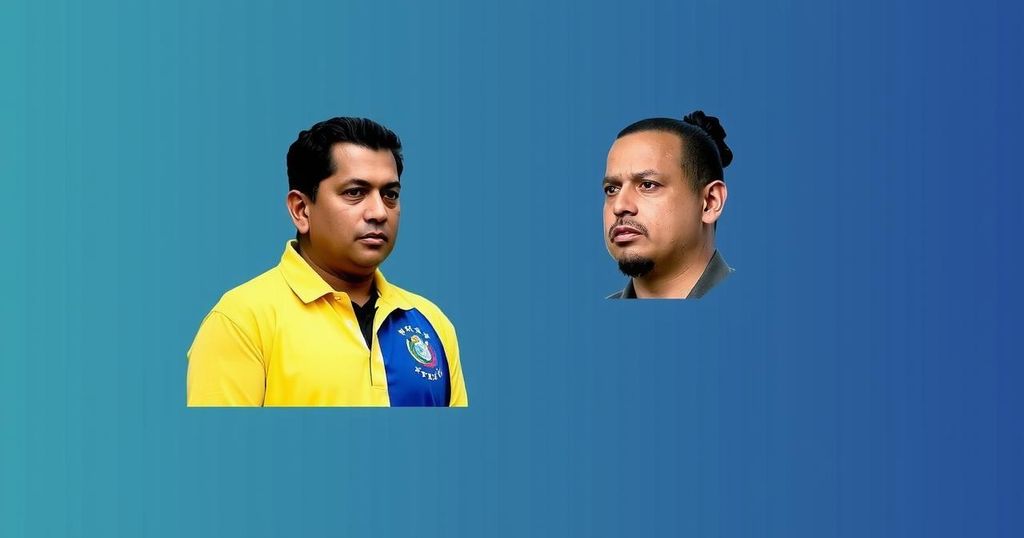The U.S. has sanctioned 21 allies of Maduro for post-election repression, recognizing opposition leader Edmundo González as the legitimate president. This follows prior sanctions and ongoing debate in Venezuela regarding the criminalization of sanctions. Despite these actions, Maduro’s regime remains resilient, raising questions about the sanctions’ effectiveness.
The United States has recently enacted sanctions against 21 associates of Venezuelan President Nicolás Maduro, citing their roles in the repression that followed the controversial presidential election held in July. Among those sanctioned are high-ranking officials, such as the head of the national corrections agency and the director of an intelligence service. These actions have resulted in an expanded list of Venezuelan officials subjected to U.S. sanctions, which already includes numerous ministers and judges.
The Biden administration has recognized opposition leader Edmundo González as Venezuela’s legitimate president following the disputed election, where Maduro claimed victory without providing verifiable vote counts. González, who has since sought asylum in Spain, asserts that he won the election by a considerable margin. Additionally, the U.S. has imposed visa restrictions on individuals suspected of repression tied to electoral unrest, although the influence of these sanctions remains uncertain, given the enduring power of Maduro’s loyalists within the government.
The Venezuelan National Assembly is also deliberating on a legislative proposal to classify economic sanctions as crimes against humanity, potentially punishing those who support these measures. The situation remains tense as international scrutiny continues over Venezuela’s electoral integrity and human rights practices.
The backdrop to these sanctions involves significant political unrest in Venezuela following the July presidential election, which was internationally criticized for lack of transparency. Nicolás Maduro, who has maintained tight control over the country, faces internal and external challenges to his governance, notably from the opposition leader Edmundo González. The U.S. has continuously taken a stance against Maduro’s regime, reflecting broader concerns about human rights and democratic processes in Venezuela. The recent sanctions are part of ongoing international efforts to hold accountable those perpetuating state-sponsored repression.
In summary, the U.S. sanctions against additional Maduro allies highlight continued international disapproval of the Venezuelan government’s actions post-election. The Biden administration’s recognition of Edmundo González further emphasizes the legitimacy of the opposition’s claims of electoral fraud. As discussions around the criminalization of sanctions in Venezuela unfold, the broader implications for governance and human rights in the nation remain to be seen. The situation continues to evolve with potential consequences for U.S.-Venezuela relations.
Original Source: abcnews.go.com







